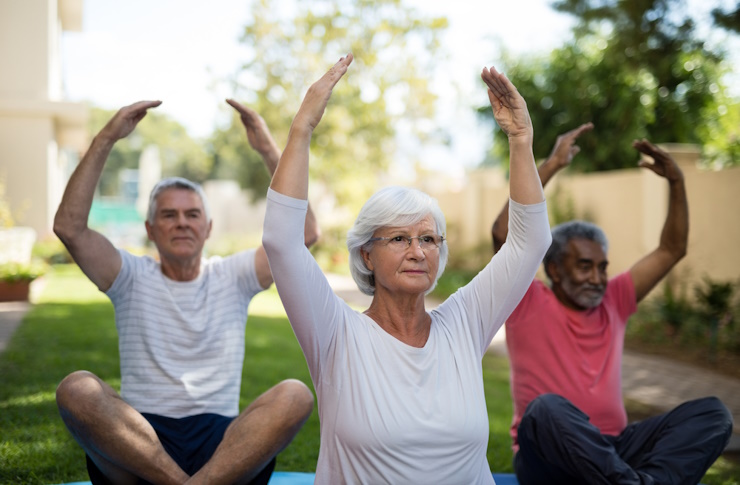Can’t relax anymore? It could be deeper than stress
Anxiety disorders affect millions of people worldwide, impacting daily life and overall well-being. This article explores various anxiety treatment options, from natural remedies to professional interventions, helping you understand when and how to seek appropriate help.

What are the common symptoms of anxiety and insomnia?
Anxiety and insomnia often go hand in hand, creating a challenging cycle for those affected. Common symptoms of anxiety include excessive worry, restlessness, irritability, and difficulty concentrating. Insomnia, on the other hand, manifests as trouble falling asleep, staying asleep, or waking up too early. Physical symptoms such as rapid heartbeat, sweating, and muscle tension can accompany both conditions. Recognizing these symptoms is crucial for early intervention and effective treatment [1].
How does stress affect sleep patterns?
Stress has a significant impact on sleep patterns, often leading to insomnia or poor sleep quality. When stressed, the body releases cortisol, a hormone that increases alertness and can interfere with the natural sleep-wake cycle. This heightened state of arousal makes it difficult to relax and fall asleep. Additionally, stress can lead to racing thoughts and worry, further disrupting sleep. Over time, this stress-induced sleep disturbance can exacerbate anxiety symptoms, creating a vicious cycle that’s hard to break without proper intervention [1].
What natural supplements can promote calmness and reduce anxiety?
Several natural supplements have shown promise in promoting calmness and reducing anxiety symptoms. Some popular options include:
-
Chamomile: Known for its calming properties, chamomile tea or supplements may help reduce anxiety and improve sleep quality.
-
Lavender: Available in various forms, lavender has been shown to have anxiety-reducing effects.
-
Magnesium: This mineral plays a role in regulating neurotransmitters and may help reduce anxiety symptoms.
-
L-theanine: An amino acid found in green tea, L-theanine may promote relaxation without causing drowsiness.
-
Valerian root: Often used as a sleep aid, valerian root may also help reduce anxiety symptoms.
While these supplements can be beneficial, it’s essential to consult with a healthcare professional before starting any new regimen, as they may interact with medications or have side effects [1].
When should you seek professional help for anxiety?
Seeking professional help for anxiety is crucial when symptoms begin to interfere with daily life or persist despite self-help efforts. Some signs that indicate it’s time to consult a mental health professional include:
- Persistent worry or fear that’s difficult to control
- Panic attacks or physical symptoms that impact daily activities
- Avoidance of social situations or activities due to anxiety
- Difficulty maintaining relationships or job performance
- Substance abuse as a coping mechanism
- Thoughts of self-harm or suicide
Early intervention can prevent symptoms from worsening and improve overall quality of life. Mental health professionals can provide a proper diagnosis and develop an individualized treatment plan tailored to your specific needs [1].
What are effective non-drug approaches to managing stress and anxiety?
Non-drug approaches to managing stress and anxiety can be highly effective and often complement other treatments. Some proven strategies include:
-
Cognitive Behavioral Therapy (CBT): This evidence-based therapy helps identify and change negative thought patterns and behaviors associated with anxiety.
-
Mindfulness and meditation: Regular practice can help reduce stress, improve focus, and promote relaxation.
-
Exercise: Physical activity releases endorphins, natural mood boosters that can help alleviate anxiety symptoms.
-
Breathing exercises: Techniques like diaphragmatic breathing can help calm the nervous system and reduce anxiety.
-
Progressive muscle relaxation: This technique involves tensing and relaxing different muscle groups to promote physical and mental relaxation.
-
Time management and organization: Reducing stress through better planning and prioritization can help manage anxiety.
-
Social support: Connecting with friends, family, or support groups can provide emotional relief and coping strategies.
Incorporating these non-drug approaches into daily life can significantly improve anxiety management and overall well-being [1].
How do different anxiety treatments compare in terms of effectiveness and cost?
Anxiety treatments vary in effectiveness and cost, depending on the individual’s needs and the severity of their condition. Here’s a comparison of common treatment options:
| Treatment | Provider | Effectiveness | Cost Estimation |
|---|---|---|---|
| Cognitive Behavioral Therapy (CBT) | Licensed therapist | High | $100-$200 per session |
| Medication (SSRIs) | Psychiatrist or primary care physician | Moderate to high | $30-$200 per month |
| Mindfulness-Based Stress Reduction (MBSR) | Certified MBSR instructor | Moderate | $300-$600 for 8-week course |
| Online therapy | Various platforms (e.g., BetterHelp, Talkspace) | Moderate | $60-$90 per week |
| Support groups | Local community centers or online platforms | Low to moderate | Often free or low-cost |
Prices, rates, or cost estimates mentioned in this article are based on the latest available information but may change over time. Independent research is advised before making financial decisions.
The effectiveness of each treatment can vary depending on the individual and the specific anxiety disorder. CBT and medication often show high effectiveness rates, while mindfulness-based approaches and support groups can be valuable complementary treatments. Costs can range from free community resources to more expensive specialized therapies. It’s important to consider both effectiveness and affordability when choosing a treatment plan, and to consult with a healthcare professional to determine the best approach for your specific situation [1].
In conclusion, effective anxiety treatment often involves a combination of approaches, including natural remedies, lifestyle changes, and professional interventions. By understanding the symptoms, recognizing when to seek help, and exploring various treatment options, individuals can find relief from anxiety and improve their overall quality of life.
The shared information of this article is up-to-date as of the publishing date. For more up-to-date information, please conduct your own research.
This article is for informational purposes only and should not be considered medical advice. Please consult a qualified healthcare professional for personalized guidance and treatment.
Sources: 1. https://www.nimh.nih.gov/health/topics/anxiety-disorders




